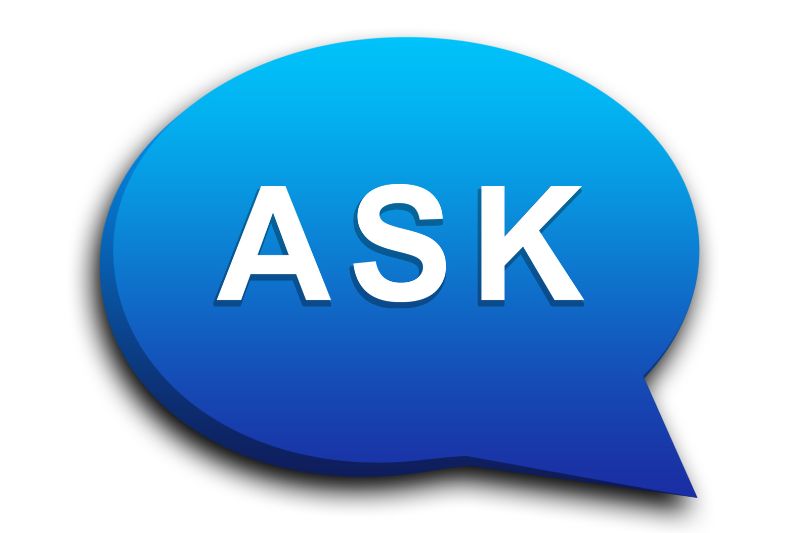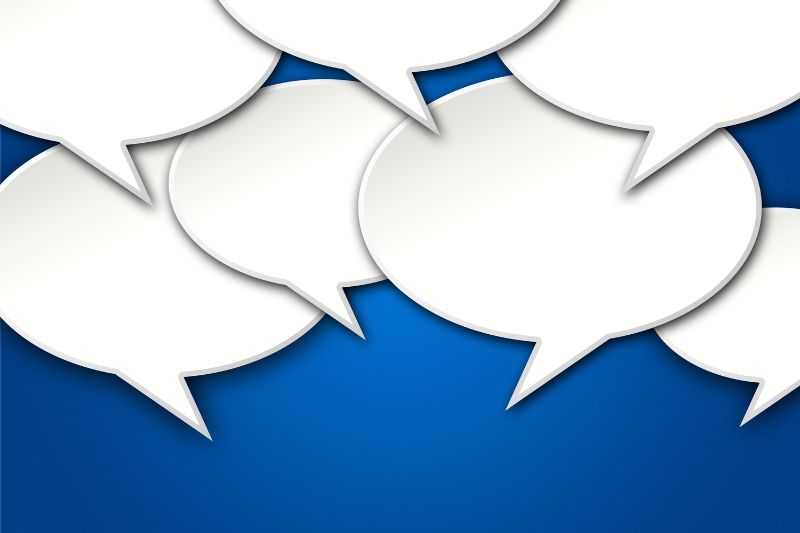Stop interrupting, be present and enjoy connecting with others: How to manage ADHD in conversations
 Conversations can be both rewarding and challenging for folks with ADHD. Perhaps you get too excited about a topic or feel nervous and overshare? Maybe you lose track of the flow and scramble to catch up on what you missed. Sometimes you might want to talk about a topic that seems relevant to you but tangential to others. Many neurodivergent people struggle with having effective, authentic conversations. All too often, those with ADHD overfocus on what they believe someone else is thinking about them. This train of thought prevents them from being authentic due to a fear of judgment, criticism or exclusion. Moreover, you may be overly critical of what you are or aren’t doing during the conversation. Now you are facing two challenges: lacking the practical tools for rewarding exchanges and feeling bad about yourself in the process. Juggling several executive functioning challenges simultaneously makes socializing tough enough without adding layers of anxiety and shame. When you combine all of these issues, your nervousness reduces impulse control and fuels the patterns of interruptions that inadvertently push people away. How can your conversations flow better with fewer interruptions? Here are tips and tools to help.
Conversations can be both rewarding and challenging for folks with ADHD. Perhaps you get too excited about a topic or feel nervous and overshare? Maybe you lose track of the flow and scramble to catch up on what you missed. Sometimes you might want to talk about a topic that seems relevant to you but tangential to others. Many neurodivergent people struggle with having effective, authentic conversations. All too often, those with ADHD overfocus on what they believe someone else is thinking about them. This train of thought prevents them from being authentic due to a fear of judgment, criticism or exclusion. Moreover, you may be overly critical of what you are or aren’t doing during the conversation. Now you are facing two challenges: lacking the practical tools for rewarding exchanges and feeling bad about yourself in the process. Juggling several executive functioning challenges simultaneously makes socializing tough enough without adding layers of anxiety and shame. When you combine all of these issues, your nervousness reduces impulse control and fuels the patterns of interruptions that inadvertently push people away. How can your conversations flow better with fewer interruptions? Here are tips and tools to help.
Why people with ADHD interrupt conversations more frequently
 Interruptions for people with ADHD frequently reflect weaker verbal impulse control, but also issues with working memory and metacognition. You may not remember to wait your turn because you don’t trust yourself to remember what you want to say later–when there’s a pause in the conversation or the other person has finished talking. This reflects a fear of forgetting. Sometimes you interrupt because you feel a need to prove themselves and establish their expertise. Or, you may really want to engage in this conversation but can’t find a way in, so you interrupt. After all, you’re very excited about this topic and eager to discuss it. At other times, you may be bored and want to change the subject, or may interrupt without even being aware that you are doing so. The urge to interrupt is also affected by anxiety. The more anxious you feel in a social situation, the higher likelihood that you will interrupt. Anxiety will exacerbate any nervousness or worries about acceptance, performance and embarrassment. When you are flooded with these intense feelings, you can be naturally more impulsive as a protective measure. In addition, you can be less capable of monitoring your words and actions.
Interruptions for people with ADHD frequently reflect weaker verbal impulse control, but also issues with working memory and metacognition. You may not remember to wait your turn because you don’t trust yourself to remember what you want to say later–when there’s a pause in the conversation or the other person has finished talking. This reflects a fear of forgetting. Sometimes you interrupt because you feel a need to prove themselves and establish their expertise. Or, you may really want to engage in this conversation but can’t find a way in, so you interrupt. After all, you’re very excited about this topic and eager to discuss it. At other times, you may be bored and want to change the subject, or may interrupt without even being aware that you are doing so. The urge to interrupt is also affected by anxiety. The more anxious you feel in a social situation, the higher likelihood that you will interrupt. Anxiety will exacerbate any nervousness or worries about acceptance, performance and embarrassment. When you are flooded with these intense feelings, you can be naturally more impulsive as a protective measure. In addition, you can be less capable of monitoring your words and actions.
How interrupting impacts connections
Take a moment and reflect on how you feel when someone interrupts you. It seems like they aren’t listening, but rather waiting for their turn to talk. The interrupter is demonstrating that their thoughts are more important than yours. How does that make you feel? Angry, unimportant, dismissed, unseen? Even though interrupting may demonstrate a lack of effective impulse control on your part, other people may not understand this. They may become irritated or impatient, and they probably feel just like you do when you’re interrupted.
Sidetracking conversations with ADHD
 Many people with ADHD go on tangents when they are telling a story or sharing what’s on their mind. This is an understandable part of having many ideas simultaneously. For example, one of my clients recited aloud for me what he was thinking, and it was a nonstop train of observations, interpretations, ideas and curiosity. Do you think your brain does this too? These many ideas lead to sidetracking in conversations. For instance, you may go off track and may not realize that you are too far down a road that goes nowhere until someone tells you. People start looking away or confront you directly, sometimes not so nicely. All too often, neurodivergent kids and adults become defensive. They feel angry and ashamed at the same time. These feelings can make things worse socially and contribute to exclusion or humiliation. Let’s look at some strategies for reducing interruptions.
Many people with ADHD go on tangents when they are telling a story or sharing what’s on their mind. This is an understandable part of having many ideas simultaneously. For example, one of my clients recited aloud for me what he was thinking, and it was a nonstop train of observations, interpretations, ideas and curiosity. Do you think your brain does this too? These many ideas lead to sidetracking in conversations. For instance, you may go off track and may not realize that you are too far down a road that goes nowhere until someone tells you. People start looking away or confront you directly, sometimes not so nicely. All too often, neurodivergent kids and adults become defensive. They feel angry and ashamed at the same time. These feelings can make things worse socially and contribute to exclusion or humiliation. Let’s look at some strategies for reducing interruptions.
5 tips for interrupting less with ADHD
1. Write things down
 Use your phone or a small pad of paper to jot down a few key words that will help you to recall what it is that you want to say on a particular topic. Whether you are in a meeting or hanging out with friends, let other folks know that you don’t want to interrupt and that taking some notes while others are talking helps you remember your thoughts better. This prepares them in case you choose to do this and wards off judgment.
Use your phone or a small pad of paper to jot down a few key words that will help you to recall what it is that you want to say on a particular topic. Whether you are in a meeting or hanging out with friends, let other folks know that you don’t want to interrupt and that taking some notes while others are talking helps you remember your thoughts better. This prepares them in case you choose to do this and wards off judgment.
2. Be candid
If you don’t want to write things down, say, “I have something to share but I don’t want to interrupt you. I’m just afraid that I will forget it.” This warns people of why you are interrupting. You will have to monitor how many times you do this though. Depending on who you’re speaking with, more than a few interruptions in a conversation might be too much. If you do happen to forget something, don’t worry. It will probably come back to you later, and you can text or email them when it does.
3. Watch out for overwhelm
Indoor parties, gatherings at a park or beach or a busy restaurant – all of these environments can be extra distracting. It will be harder for you to track what’s being said by whom and stay with the conversation. If you can’t hear or focus on what someone is telling you, ask if you can move somewhere quieter or step away from the noise for a few moments.
4. Listen and ask questions
 People like to talk about themselves, and they also like to feel heard. Use reflective listening techniques to keep the conversation going. Here are a couple examples: “I heard you say X, tell me more about that.” “That sounds interesting. Can you describe/explain it further?”
People like to talk about themselves, and they also like to feel heard. Use reflective listening techniques to keep the conversation going. Here are a couple examples: “I heard you say X, tell me more about that.” “That sounds interesting. Can you describe/explain it further?”
5. Use the “WAIT-Now” method
The “WAIT-Now” method involves periodically asking yourself, “Why am I talking now?” Remember that a pause in a sentence doesn’t mean the person is finished speaking. If you are unsure, wait 10 seconds, and then ask if they’re done before you start speaking.
Plan ahead for how you’ll manage impulsiveness during conversations
Planning ahead will help take away some of the stress during social situations and will make social interactions go more smoothly. You know yourself well enough to expect some issues with impulsive control when speaking with others.  If you tend to lose focus when someone is speaking or get a sudden urge to interject, remind yourself to watch the speaker’s mouth or hand gestures to keep yourself in the present. Ask open-ended questions that begin with how and what more than why. This will allow the speaker to continue talking while giving you a bit of time to regroup your thoughts and focus. Likewise, ask a friend or family member to help you with interrupting. Maybe collaborate on a signal that communicates if you’ve wandered too far off topic or have been talking too long. Most folks feel some amount of insecurity in social settings. For those with ADHD, feeling uncertain, worried about how you compare to others, or worried about how other people perceive you is extremely common. But it doesn’t mean you should stop making social connections or engaging in conversations. Instead, armed with the tools and strategies described above, you can feel more confident when meeting new people, participating in group conversations, and making lasting friendships.
If you tend to lose focus when someone is speaking or get a sudden urge to interject, remind yourself to watch the speaker’s mouth or hand gestures to keep yourself in the present. Ask open-ended questions that begin with how and what more than why. This will allow the speaker to continue talking while giving you a bit of time to regroup your thoughts and focus. Likewise, ask a friend or family member to help you with interrupting. Maybe collaborate on a signal that communicates if you’ve wandered too far off topic or have been talking too long. Most folks feel some amount of insecurity in social settings. For those with ADHD, feeling uncertain, worried about how you compare to others, or worried about how other people perceive you is extremely common. But it doesn’t mean you should stop making social connections or engaging in conversations. Instead, armed with the tools and strategies described above, you can feel more confident when meeting new people, participating in group conversations, and making lasting friendships.
